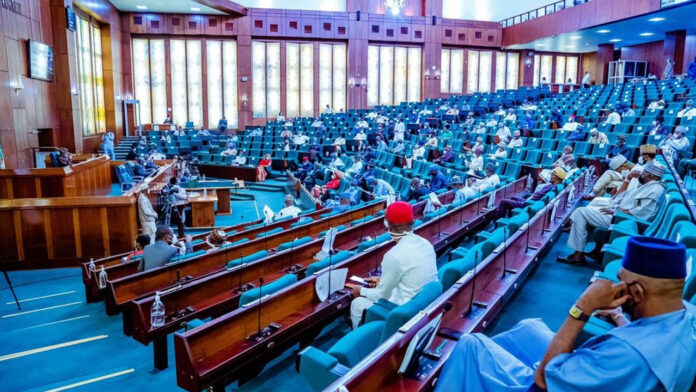The House of Representatives on Wednesday urged the Federal Government to reverse the recent hike in fuel prices and take immediate action to stabilize the cost of petrol and cooking gas in the country.
This followed the adoption of a motion titled, “Urgent Need to Suspend the Increased Cost of Petrol and Cooking Gas in the Country and Provide a Stop-Gap,” moved by Hon. Sani Ali Madaki (NPP-Kano) and over 100 other lawmakers during a plenary session presided over by Speaker Tajudeen Abbas.
The House called for swift measures to address the price hikes, suggesting targeted interventions such as temporary price relief, tax reductions, or subsidies on Liquefied Petroleum Gas (LPG) for low-income households.
Additionally, the House urged the Nigerian National Petroleum Corporation (NNPC), the Ministry of Petroleum Resources, and other relevant agencies to expedite repairs and maintenance of domestic refineries to increase local refining capacity and reduce reliance on imported petroleum products.

Furthermore, the lawmakers asked the Central Bank of Nigeria (CBN) to implement monetary policies that would ease the inflationary effects of fuel price increases, especially concerning essential goods and services. They also encouraged the Federal Government to explore alternative energy sources and diversify the country’s energy mix to reduce dependence on petrol and gas, promoting more sustainable and affordable renewable energy solutions for the future.
State governments were also urged to introduce policies that could lessen the financial burden on citizens, such as waiving taxes or levies on transportation and goods affected by high fuel costs.
While presenting the motion, Hon. Madaki highlighted that as an oil-producing nation, Nigeria has long relied on petroleum products and cooking gas for both domestic and industrial energy needs. He expressed concern over the recent sharp increase in fuel and cooking gas prices, which has worsened the cost of living for ordinary Nigerians.
Madaki noted that the removal of fuel subsidies, combined with global oil price fluctuations and the devaluation of the Naira, has contributed significantly to the rising costs. He emphasized that the higher fuel prices have led to increased costs of transportation, food, healthcare, and essential goods, further inflating prices and pushing more Nigerians into financial hardship.
He added that small and medium-sized businesses (SMEs) are struggling with operational costs due to fuel price hikes, threatening economic stability and job security in the country.




